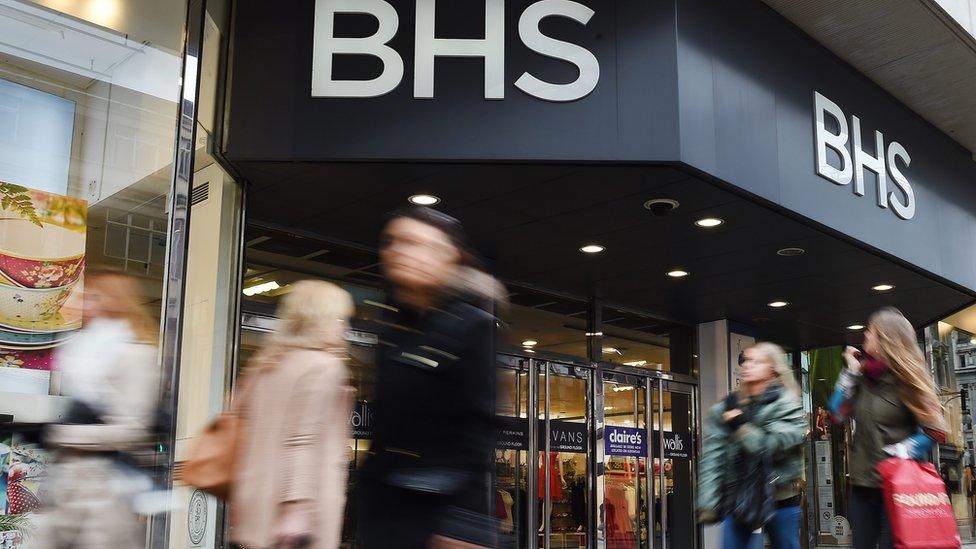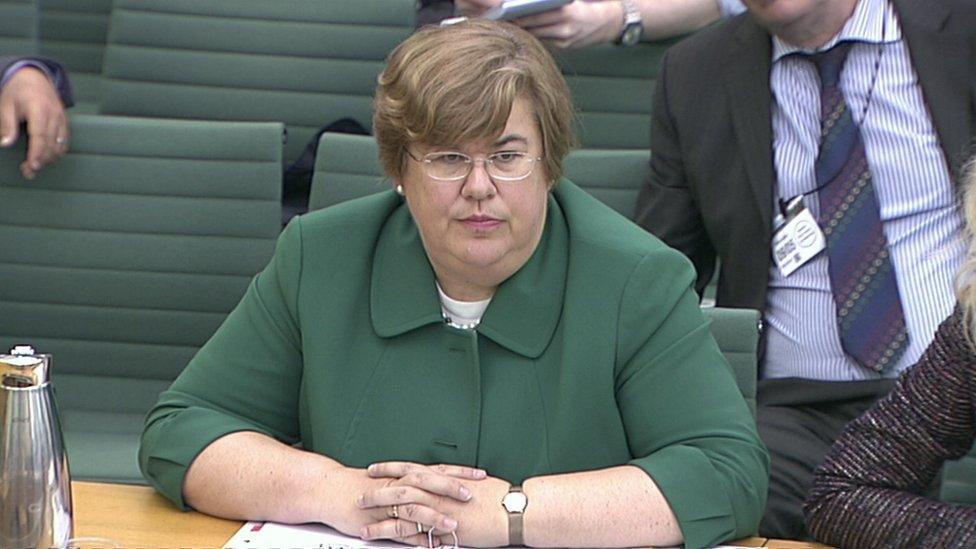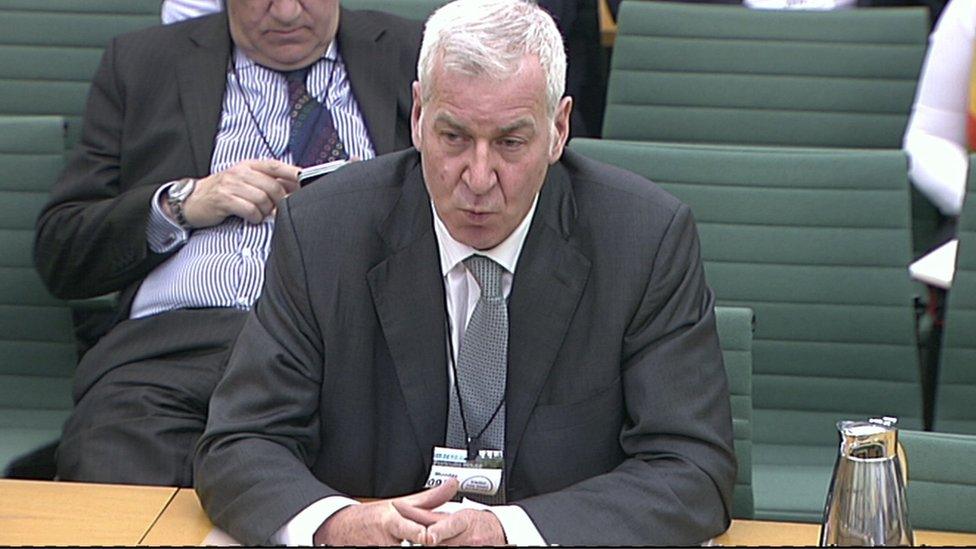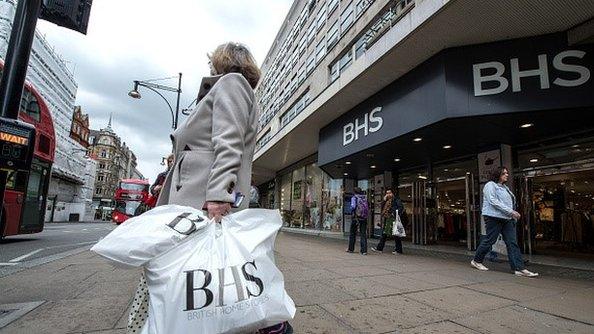Pensions watchdog learned of BHS sale from media reports
- Published

The head of the Pensions Regulator learned about the sale of BHS for £1 last year through the media, MPs heard.
Lesley Titcomb said: "We were not, as I'm aware, advised in advance. We learnt about the sale from the newspapers."
She was giving evidence to MPs about the collapse last month of BHS, whose pension fund had a £571m deficit.
The pensions watchdog was first in discussions with BHS in 2009 about its pension fund deficit.
As soon as the sale of BHS by Sir Philip Green to a consortium called Retail Acquisitions was announced, Ms Titcomb said the Regulator opened an anti-avoidance case to determine whether the previous owners should be pursued to make up the fund's shortfall.
Richard Fuller, one of the MPs attending the joint hearing of the Work and Pensions and Business select committees, said the pensions watchdog did "not sound like much of a regulator".

Pensions Regulator chief executive Lesley Titcomb
Ms Titcomb disagreed and said it would be inappropriate to put a greater burden on most employers who behave properly.
When pension funds had deficits she said the company it belonged to had to be given sufficient time to rectify that situation. It was difficult when people were "irresponsible", but that was not the case in the vast majority of situations, Ms Titcomb told MPs.
However, the head of the Pension Protection Fund (PPF) earlier told MPs that rescue plans to erase deficits for pension schemes should have time limits.
'Rather ambitious'
Alan Rubenstein said that in 2012 BHS's pension fund trustees had submitted a 23-year plan to return the fund to a surplus.
He said the average length of a recovery plan was nine years: "We've learned that 23-year recovery plans are rather ambitious."
The PPF wanted recovery periods to be "as short as possible", but he acknowledged that the Pensions Regulator did not want to "push companies over the edge".

Pension Protection Fund chief executive Alan Rubenstein
He told MPs that the cost to the PPF to rescue BHS's pension fund would be about £275m - a sum that he said would not affect the fund's finances.
The PPF, which protects pensioners in the event of a company failing with a pension fund that is in deficit, is funded by a levy on all UK pension funds.
Mr Rubenstein said that the Pensions Regulator should have more power to intervene in takeovers when it was concerned about a company's pension scheme deficit.
He told MPs that a subsidiary of the Arcadia Group called Davenbush withdrew a guarantee for the BHS pension scheme in 2012. Arcadia is the retail empire controlled by Sir Philip.
'Creaking at the seams'
Sir Philip, the owner of Top Shop, has agreed next month to answer MPs' questions about the sale of BHS, which he owned for 15 years.
Tom McPhail, head of retirement policy at Hargreaves Lansdown, said the UK's pension system was "creaking at the seams".
"The revelations that the BHS scheme had a 23-year deficit reduction programme and that the Regulator didn't know about the sale of BHS until announced in the papers raises uncomfortable questions about the adequacy of the protection of pension scheme members generally," he said.
"Pension investors, whether in final salary schemes or money purchase arrangements, have a right to expect their retirement savings to be protected by professional managers operating to high regulatory standards."
Separately, the Work and Pensions Committee said it had invited the former and current Chair of Trustees and Trustees of the BHS pension fund to give evidence on 25 May.
- Published9 May 2016

- Published6 May 2016
